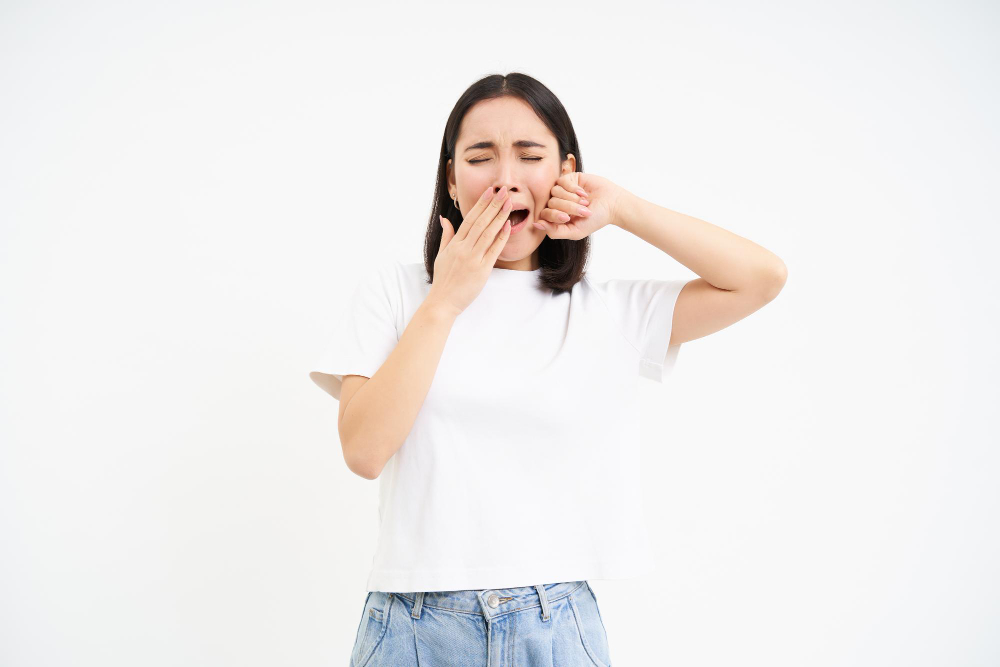
Bad breath is one of the complaints that often occurs when fasting. Bad breath certainly makes you uncomfortable and confident. Fortunately, there are several ways to get rid of bad breath while fasting. Check out the explanation below.
Bad breath during fasting can disrupt your activities and even make you less confident when meeting other people. Bad breath during fasting can be caused by several factors, mainly due to the lack of fluids in the body and changes in diet during fasting. Here are some common causes of bad breath during fasting:
When fasting, especially in hot weather, the body can become dehydrated due to lack of fluid intake. Dry mouth due to dehydration can lead to the growth of bacteria in the mouth that can produce an unpleasant odor. So, you must fulfill your water needs during sahur and iftar.
Lack of water consumption during fasting can lead to decreased saliva production. Saliva has an important function in cleaning bacteria and food particles from the mouth. Lack of saliva can increase the risk of bad breath.
Dietary changes during the fasting month, such as increased consumption of protein-rich foods or smelly foods, can also contribute to bad breath. Odors from certain foods such as garlic, onion, or spices can also linger in the breath. For this reason, you must eat healthy foods such as vegetables and fruits.
Some people may tend to refrain from drinking water while fasting for fear of interrupting the fast. However, this can lead to dry mouth and increase the risk of bad breath.
Lack of proper dental cleaning due to the inability to rinse your mouth or brush your teeth while fasting can lead to the buildup of dental plaque. Bacteria in dental plaque can cause bad breath. By maintaining oral hygiene, you can prevent bad breath while fasting.
Persistent or severe bad breath while fasting can also be a sign of health problems, such as digestive disorders, tooth or gum infections, or other health issues. If bad breath persists or does not improve, see a dentist.
Instead of staying silent during fasting and avoiding meeting other people, you should immediately overcome bad breath especially during your Ramadan fasting. Here are ways to get rid of bad breath while fasting so you don't feel inferior anymore:
Brush your teeth at least twice a day, especially after sahur and iftar. Floss regularly to clean between your teeth, and rinse your mouth with antibacterial mouthwash.
Avoid foods and drinks that can increase bad breath such as garlic, onions, spicy foods, coffee, and alcohol. Choose lighter, low-odor foods such as fresh fruits and vegetables.
Make sure to drink plenty of water during iftar and sahur to keep the body hydrated. Water helps in the production of saliva which helps wash away bacteria that cause bad breath.
Clean the tongue regularly by brushing it or using a tongue cleaner. Bacteria and food debris that accumulate on the tongue can also cause bad breath.
After eating sahur and iftar, gargle with plain water for a few moments to help wash away food debris and bacteria in the mouth.
Smoking not only contributes to bad breath, but can also lead to more serious oral health problems. If you smoke, consider quitting.
If bad breath continues to be a problem despite taking the above steps, do not hesitate to see a doctor. They can help determine the cause of bad breath and provide appropriate advice or treatment.
By maintaining oral hygiene, consuming plenty of water, and watching your diet, those are the most effective ways to get rid of bad breath while fasting that you can try! (Aq/LDS)